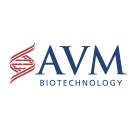AVM Biotechnology Awarded SBIR Phase I Grant From National Cancer Institute

Seattle, WA (Press Release) – AVM Biotechnology has been awarded a National Cancer Institute Small Business Innovation Research (SBIR) Grant from the National Institutes of Health (NIH) to study the use of their lead molecule AVM0703 as a preconditioning agent to allow safe and efficient delivery of therapeutic immune cells for cancer treatment. This novel solution could offer clinical advantages to any cell-based immunotherapy, improving access to potentially life-saving therapies by all cancer patients, including those too frail to receive chemotherapy.
Cellular immunotherapy has the potential to become a crucial solution for cancer. However, toxic chemotherapy is currently required as preconditioning treatment to impair graft rejection and maintain therapeutic cells in the bloodstream where they can target cancer cells. Chemotherapy is hardly tolerated by frail cancer patients, and it fuels the side effects of immunotherapy such as toxic cytokine releases (CRS) and neuroedemas. AVM0703, which could be easily administered to increase efficient delivery of adoptive cellular immunotherapy, induces safe lymphodepletion in only 24 hours, sparing platelets, stem cells and red blood cells in animal models. AVM0703 can safely deplete monocytes, known to be a key inducer of CRS. CRS toxicities occur as frequently as 90% with half of them determined as severe. Severe CRS complications can be life threatening if not treated in a timely manner. Unlike chemotherapy, AVM0703 could safely deplete monocytes reducing the risk of CRS and making cellular immunotherapy accessible to high-risk individuals.
This Phase I grant will be used to validate the efficacy and safety of preconditioning by AVM0703 in an established tumor mouse models of multiple myeloma (MM). The proposal was regarded as very significant in addressing a clinical need of better ways for improving efficacy and reducing toxicity of cellular therapies. Moreover, preconditioning using AVM0703 was seen as well supported by a good rationale and strong preliminary data. AVM0703 mode of action could offer an exemplary preconditioning regimen.
Named one of the top 10 best Biotech and Pharma companies to keep your eye on in 2019 by Mirror Review Online Magazine, AVM Biotechnology was founded in 2008 by Dr. Theresa Deisher, Ph.D. With over 30 years of successful pharmaceutical research experience and holding over 47 patents, Dr. Deisher leads a team of scientists dedicated to changing what a diagnosis of cancer, autoimmunity, or chronic infectious disease means to patients and their loved ones. AVM received FDA IND approval in April 2020 to test AVM0703 for treatment of relapsed / refractory lymphoid malignancies. AVM's passion is to deliver drugs that work rapidly and that are safe, effective, and affordable, to treat serious worldwide illness like cancer, autoimmunity, and life-altering infectious disease. They develop products that improve outcomes without additional suffering because they believe that side effects from treatments of cancers or infections should never be worse than the diseases themselves.
AVM is the only company to receive homologous use designation for a patient's own bone marrow used for an indication outside of blood disorders. Additionally, in 2019 AVM Biotechnology was awarded an SBIR grant for targeted lympho-ablation as an alternative to cure Type I Diabetes by the National Institute of Diabetes and Digestive and Kidney Disease (NIDDK).
This award was granted by the National Institutes of Health under Award Number R43CA246896. The content of this press release is solely the responsibility of the author and does not necessarily represent the official views of the NIH.
Cautions Concerning Forward-Looking Statements
All information contained herein has been provided by the company and no other party has independently verified any of the information, including the financial estimates and projections contained herein. Some of the statements in the memorandum are "forward-looking statements." these forward-looking statements include, but are not limited to, statements about the company's plans, objectives, expectations and intentions and other statements contained in the memorandum that are not historical facts. When used in this memorandum, the words "assumes," "anticipates," "believes," "continue," "could," "expects," "forecasts," "intends," "may," "plans," "seeks," "should," or "will" or the negative of these terms or similar expressions are generally intended to identify forward-looking statements. Because these forward-looking statements involve risks and uncertainties, there are important factors that could cause actual results to differ materially from those expressed or implied by these forward-looking statements, including the company's plans, objectives, expectations and intentions and other factors discussed under "risk factors" such statements, estimates and projections reflect various assumptions of the company that may or may not prove to be correct. And no representation is made and no assurance can be given that the company can or will attain such results.
Source: AVM Biotechnology.
Related Press Releases:
- BioLineRx Announces Positive Results From Interim Analysis Of GENESIS Phase 3 Trial Of Motixafortide (BL-8040) In Stem Cell Mobilization
- FDA Lifts Clinical Hold On MELANI-01 Study Evaluating Cellectis’ Product Candidate UCARTCS1 In Multiple Myeloma
- Sanofi Offers To Acquire Kiadis, A Clinical-Stage Company Developing Cell-Based Immunotherapy Products
- Genmab Announces IFM, HOVON And Janssen Achieve Positive Topline Results In Second Part Of Phase 3 CASSIOPEIA Study Of Daratumumab In Multiple Myeloma At Pre-Planned Interim Analysis
- FDA Grants Glycostem's oNKord Orphan Drug Designation For Multiple Myeloma
